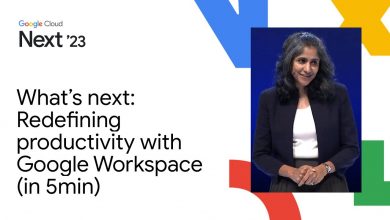Content and SEO/PPC Marketing Best Practices for Small Businesses
Introductory guide to SEO/PPC content marketing and Scottish agencies providing digital marketing services.
 As a small business owner, it’s crucial to have a strong online presence to reach your target audience effectively.
As a small business owner, it’s crucial to have a strong online presence to reach your target audience effectively.
Digital marketing offers numerous opportunities to promote your products or services and increase brand awareness.
In this article, we will discuss the best practices for small businesses in digital marketing.
- Define Your Target Audience – Before diving into digital marketing, it’s essential to identify your target audience. Understanding their demographics, interests, and online behavior will help you tailor your marketing efforts effectively.
- Create a Professional Website – Your website serves as the online face of your business. Ensure it is visually appealing, easy to navigate, and mobile-friendly. Provide relevant and engaging content to keep visitors interested and encourage them to take action.
- Optimize for Search Engines – Search engine optimization (SEO) is crucial for improving your website’s visibility in search engine results. Conduct keyword research and optimize your website’s content, meta tags, and URLs. Build quality backlinks and ensure your website loads quickly.
- Leverage Social Media – Social media platforms offer great opportunities to connect with your target audience. Identify the platforms where your audience is most active and create engaging content. Regularly interact with your followers, respond to comments, and use social media advertising to expand your reach.
- Implement Email Marketing – Email marketing is a cost-effective way to nurture leads and build customer loyalty. Create compelling email campaigns, segment your audience, and personalize your messages. Provide valuable content and exclusive offers to encourage engagement and conversions.
- Measure and Analyze Results – Regularly monitor and analyze your digital marketing efforts to understand what works and what needs improvement. Utilize tools like Google Analytics to track website traffic, conversion rates, and user behavior. Make data-driven decisions to optimize your strategies and achieve better results.
Content Marketing
Content marketing is the primary method for driving traffic to your web site, and plays a crucial role in any comprehensive digital marketing strategy.
It involves creating and distributing valuable, relevant, and consistent content to attract and engage a target audience. By providing valuable information and building trust, content marketing helps businesses establish themselves as industry leaders and drive profitable customer actions.
Content marketing is essential for several reasons:
- Building brand awareness and credibility.
- Attracting and engaging target audience.
- Driving organic traffic and improving SEO.
- Generating leads and increasing conversions.
- Nurturing customer relationships and loyalty
Implementing a well-executed content marketing strategy can provide numerous benefits including increased website traffic, improved search engine rankings, enhanced brand reputation and authority, greater lead generation and conversion rates, and is cost-effective compared to traditional advertising.
In-house content marketing involves creating and managing content internally within your organization. This approach offers several advantages including direct control over content creation and quality, deep understanding of the brand and target audience and potential cost savings in the long run.
Outsourcing content marketing involves hiring external agencies or freelancers to handle content creation and distribution. This approach offers several benefits including access to specialized expertise and industry knowledge, saving time, access to advanced tools and technologies and the opportunity to gain fresh perspectives and ideas.
Content marketing is a vital component of a successful digital marketing strategy. Whether you choose to handle it in-house or outsource, the key is to create valuable and engaging content that resonates with your target audience. By consistently delivering high-quality content, you can build brand awareness, drive traffic, and ultimately achieve your business objectives.
SEO and PPC
Obviously this content needs to be seen to perform it’s role, and this is where SEO and PPC can be utilizes.
Small businesses often struggle to gain visibility and attract customers in the competitive online world. However, there are two powerful strategies that can help them overcome these challenges: Search Engine Optimization (SEO) and Pay-Per-Click (PPC) advertising.
SEO stands for Search Engine Optimization. It is the practice of optimizing a website to improve its visibility and ranking in search engine results pages (SERPs). SEO involves various techniques and strategies aimed at making a website more attractive to search engines like Google, Bing, and Yahoo.
PPC stands for Pay-Per-Click. It is an online advertising model where advertisers pay a fee each time their ad is clicked. PPC ads are typically displayed on search engine results pages, websites, and social media platforms. The most popular PPC platform is Google Ads, formerly known as Google AdWords.
SEO offers several advantages for small businesses:
- Increased Organic Traffic: By optimizing their website for relevant keywords, small businesses can attract more organic traffic from search engines.
- Improved Visibility: Higher rankings in search results lead to increased visibility, making it easier for potential customers to find the business.
- Brand Credibility: Ranking on the first page of search results instills trust and credibility in the minds of consumers.
- Long-Term Results: Unlike PPC, which stops generating traffic once the budget runs out, SEO efforts can provide long-term benefits.
PPC advertising offers several benefits for small businesses:
- Immediate Results: PPC campaigns can generate instant traffic and results, making it ideal for businesses looking for quick visibility.
- Precise Targeting: Advertisers can target specific demographics, locations, and interests, ensuring their ads reach the right audience.
- Flexible Budgeting: PPC allows businesses to set their own budget and only pay when someone clicks on their ad, making it cost-effective.
- Measurable ROI: PPC platforms provide detailed analytics, allowing businesses to track their return on investment and make data-driven decisions.
While both SEO and PPC aim to improve online visibility, they differ in several ways:
- Cost: SEO is generally considered a long-term investment, while PPC involves immediate costs.
- Timeframe: SEO requires time to see results, while PPC generates immediate traffic.
- Visibility: SEO provides organic visibility, while PPC offers paid visibility.
- Click-through Rates: Organic search results tend to have higher click-through rates than paid ads.
For small businesses looking to promote themselves online, a combined SEO and PPC strategy can be highly effective. Here are some steps to consider:
- Keyword Research: Identify relevant keywords that your target audience is searching for.
- On-Page Optimization: Optimize your website’s content, meta tags, headings, and URLs to align with the identified keywords.
- Content Creation: Develop high-quality, informative content that incorporates the targeted keywords.
- PPC Campaign Setup: Create targeted PPC campaigns with compelling ad copy and relevant landing pages.
- Monitoring and Analysis: Continuously monitor the performance of your SEO and PPC efforts, making adjustments as needed.
SEO and PPC are powerful tools that can help small businesses promote themselves online. While SEO provides long-term benefits and organic visibility, PPC offers immediate results and precise targeting. By developing a well-rounded strategy that combines both approaches, small businesses can maximize their online presence and attract more customers.
Scottish Digital Marketing Service Providers
| Attacat | A group of passionate and growth-focused digital marketing and search engine specialists based in Edinburgh. Google Premier Partners. | |
| Digital Marketing Scotland | Digital Marketing Scotland offers a comprehensive range of digital services, from SEO to Pay Per Click campaign management, Web Design and Social Media Management. | |
| Denvir Marketing | Denvir is more than a full-service Branding, Digital, and Experiential agency; delivering more than expert insights, award-winning designs, and customer-winning experiences. | |
| AJD Digital | AJD Digital is a full-service Digital Marketing agency, based in Perth, with a proven track record of achieving results. | |
| Made in Scotland | Made in Scotland is a digital marketing and web design company that offers end-to-end web design solutions for businesses and organisations. | |
| Fatbuzz | Fatbuzz is an agency specialising in marketing, design, website design & development, SEO, PPC and video & podcasts, and one which has been created to meet the demands of the 21st century. | |
| The Union | A multi-disciplinary, award winning integrated communications agency based in Edinburgh and Leeds. | |
| Munro Agency | The Munro Agency works with a number of multinational companies as well as local small to medium size enterprises, helping bridge the gap between sales and marketing by delivering focused campaigns and helping your company to produce sales ready leads. | |
| Red Evolution | A Scottish digital agency that helps businesses faster. HubSpot partners with technical expertise across digital marketing, content marketing, SEO, PPC, CRO, web design and development and video production.. | |
| Web Integrations | An established digital marketing agency with offices based near Aberdeen, Scotland and clients across the length and breadth of the UK, building websites, apps and digital marketing campaigns that improve your online performance. | |
| Lane | An Edinburgh agency, growing ambitious brands through Advertising, Design, Digital & Media. | |
| 39 Steps | 39steps is a full-service creative agency based in Edinburgh. |



